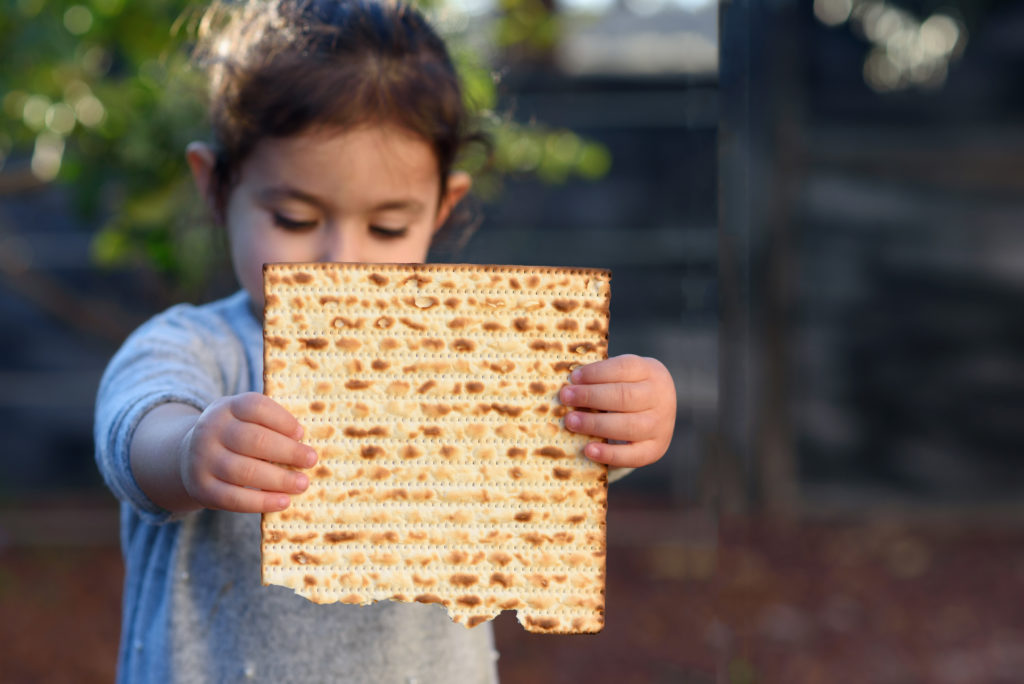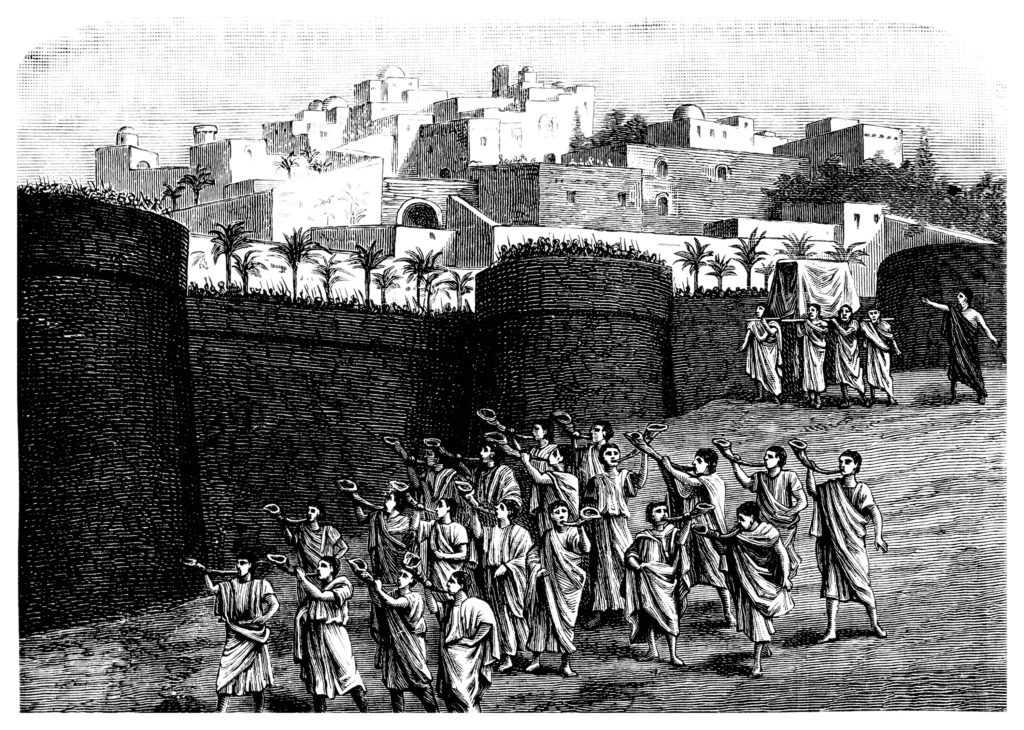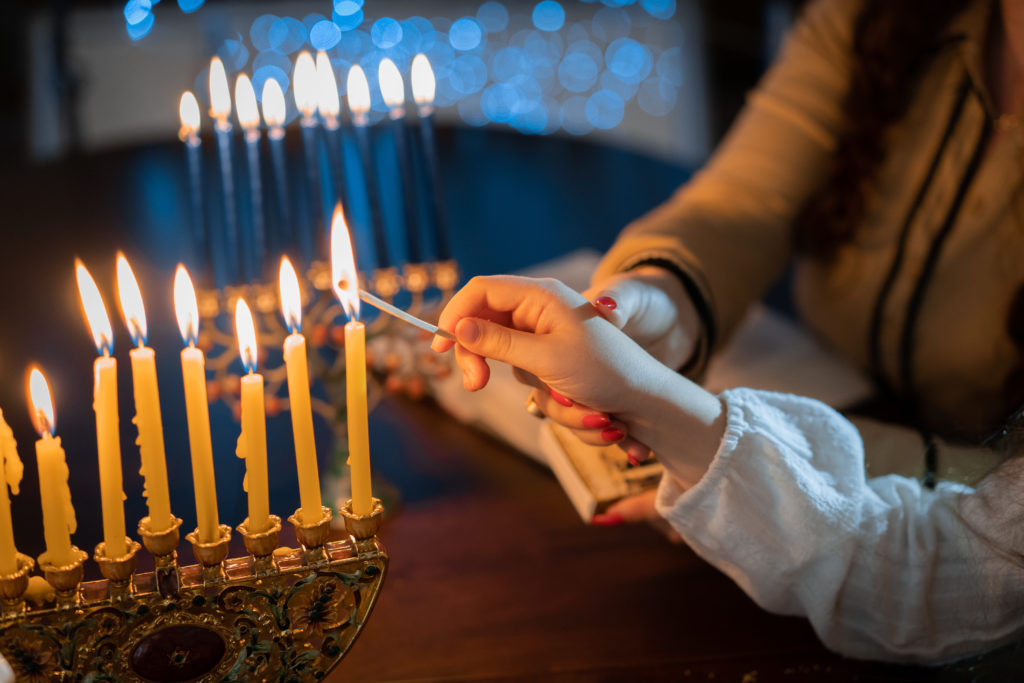Feasts of the Lord
The Jewish people have kept many of the biblical feasts through the centuries. God established the biblical feasts for His people to observe. And since Israel became an independent nation in 1948, some of the feasts became official holidays in Israel.
What we commonly refer to as the ‘Jewish feasts’ should more appropriately be called Biblical Feasts or “Feasts of the Lord.” Especially, since in the Bible God calls these festivals simply His own. Just look at how many times that phrase is repeated in a single chapter of Leviticus:
These are the feasts of the Lord, holy convocations which you shall proclaim at their appointed times. (23:4) These are the feasts of the Lord which you shall proclaim to be holy convocations. (23:37) You shall keep it as a feast to the Lord… (23:41) So Moses declared to the children of Israel the feasts of the Lord. (23:44)
Download your FREE Biblical Feasts PDF:
Biblical Feast as Holy Convocation
Leviticus 23 briefly covers all of the feasts of the Lord. There are three annual feasts that the Lord commanded all of Israel to celebrate in Jerusalem — Passover, Shavuot (Pentecost) and Sukkot (Feast of Tabernacles). Each feast, regardless when or how it is celebrated, is called the same thing: a “holy convocation.”
The Hebrew word for convocation is “mik-rah.” Strong’s Concordance describes this word as “something called out, i.e., a public meeting (the act, the persons, or the place)”. But this is not just any “public meeting.” When used in Scripture, this word “mik-rah” is almost always followed by the word “ko-desh,” which is translated, “holy.” This is not like just any another “church get-together.” This indicates a sacred gathering because God Himself has called Israel to come together, and He will be in their midst.

Biblical Holidays
There are several Christian holidays that famously correspond with Jewish ones. We know Jesus had a Passover meal with His disciples. Later, that meal became known as the Last Supper, and it happened the night before His crucifixion.
You may also remember that the outpouring of the Holy Spirit happened on the holiday of Pentecost. Not everyone knows, but Pentecost is the biblical Feast of Weeks, Shavuot. So, how come we don’t celebrate both holidays – the Jewish and the Christian one – on the same day?
The Hebrew Calendar
That is because the Hebrew calendar is slightly different from the western Gregorian calendar. In short, the Gregorian calendar is solar. That means the seasons are determined by the sun. According to the Gregorian calendar, we are now in year 2020. Our years begin in January.
In contrast, the Hebrew calendar is lunar. Each month is determined by the phases of the moon. In Biblical times, the year would begin in early Spring. God said the month of Passover was the first month of the year. However, in Israel today, the year starts in early fall – but more on that further below.
A Day in a Week
In the Hebrew calendar, a day runs from one sunset to the next. This definition is rooted in the Biblical description of the Yom Kippur holiday in Leviticus 23:32, where it says the holiday lasted “from evening to evening”. The Jewish people and the state of Israel still follows this rule.
That is why the holiest day of the week – the Sabbath – rightfully identified as Saturday, starts being celebrated on Friday evening. And as soon as the sun sets on Saturday, the new week begins.
When God created the world, He did so in six days. After God created man and woman, before they even got a chance to rule over creation, He invited them to rest. Adam and Eve started their lives on earth with fellowship with their Creator on the Sabbath.
Because of the story of creation, in Hebrew the days of the week are simply called: Day First (Sunday), Day Second (Monday), Day Third… The count ends with Shabbat, the seventh day.
Hebrew Measure of Time in Biblical Feasts
God revealed so much of Himself in the biblical celebrations. Jesus said, If you believed Moses, you would believe Me; for He wrote of Me (John 5:46). God revealed in His Word that even though He mysteriously works outside of our timeframe, He works with it for our benefit, and wants us to be mindful of it.
He teaches us to remain watchful. In one of his psalms, Moses expresses it beautifully, asking the Lord: “Teach us to number our days, that we may gain a heart of wisdom” (Ps 90:12).
Whichever calendar we follow, God is teaching us about His appointed times. We can celebrate the miracles He has done. Most importantly, we can prepare for the second coming of His Son to Earth.
Hebrew Word for Feast
There are a few Hebrew words for “feast.” One is Chag, which means “to circle, as in to circle dance or feast”. often used in reference to the Feast of Unleavened Bread, Feast of Weeks (Pentecost), and Feast of Tabernacles, as pilgrimage feasts.
In Biblical times, these three feasts required that you make your way to where the Tabernacle or Temple stood. Which was initially several different places, and eventually, Jerusalem. In contrast, other festivals or appointed times could be celebrated in your home or wherever you lived.
Chagim (plural) are to be celebrated before the Lord in a joyous, party atmosphere with singing, dancing, and processions.
To what do the Feasts of the Lord point?
The feasts of the Lord are the public calling of God for anyone to come to these holy convocations. God also included specific signs that were appointed before the foundation of the world and represent His desire for all of mankind.
“…in respect to a festival or a new moon or a Sabbath day — things which are a mere shadow of what is to come; but the substance belongs to Christ.” (Colossians 2:16-17)
Christians can freely celebrate the Jewish feasts (feasts of the Bible) out of a desire to know God’s character. So, let’s dive deeper into what they are.
Feasts of the Lord in Spring
Passover
Passover falls on the tenth of this month, called Nissan. It is the first of three pilgrimage holidays. These were appointed times for all Jews to come to Jerusalem.
It celebrates the exodus of Israelites from Egypt and freedom from bondage.
The Hebrews who believed God to keep them safe were protected from death by the blood of the lamb on their doorposts. It is a clear picture of the sacrifice of Jesus, who saved us through his death on the Cross.

The Feast of Unleavened Bread
Unleavened Bread is usually identified with Passover as they are closely related. However, it deserves to be mentioned separately – as it is in the Bible.
In fact, Passover only happened on the first day. The remaining seven holy days are the Feast of the Unleavened Bread. People are instructed to clean out the yeast out of their homes and only eat bread without leaven, called matzah.
Feasts of the Lord in Summer
Shavuot or Feast of Weeks
In early Summer (or sometimes still in late Spring), all Israel celebrates Shavuot – Feast of Weeks. It is the second pilgrimage holiday and it opens the season of harvest in Israel. Called also the Feast of Weeks, it is celebrated after seven weeks since Passover.
The 50 days is also the reason why it is called Pentecost, meaning fifty in Greek and Latin. On Shavuot, God gave Moses and the people of Israel His law. Millenia later, on this day God poured out His Spirit on the people celebrating Shavuot in Jerusalem.
Summer is also a season when the Jewish people commemorate the destruction of the Temple. The day is called Tisha B’Av and it is a day of mourning and fasting.
Feasts of the Lord in Fall
Fall is the most festive season of the year for the Jewish people. Fall feasts are the most famous ones in the Jewish holiday cycle.
Feast of Trumpets or Rosh HaShanah
The Feast of Trumpets, better known as Rosh HaShanah, meaning Head of the Year, points to the beginning of the civil calendar in Israel. However biblically, it was a solemn day with trumpet blasts reminding people to reflect on their lives and repent.
Nevertheless, the Jewish tradition on Rosh HaShanah is to dip apples in honey, wishing everyone a good and sweet new year. Feast of Trumpets begins the High Holidays, also called the Days of Awe, that lead up to the Day of Atonement.

Day of Atonement – Yom Kippur
Day of Atonement in Hebrew is called Yom Kippur. It is the holiest day of the year for the Jewish people. Many spend the day on intensive prayer, asking God for forgiveness. It is a day of fasting and in Israel everything comes to a full stop, including airports and traffic.
This day reminds us what a gift we have in Jesus, who became the ultimate atonement for our sins.
Sukkot: Feast of Tabernacles
The joyous Feast of Tabernacles is the third (out of three) pilgrimage holiday. It is both commemorative and prophetic in its meaning.
Called Sukkot in Hebrew (booths), it points to the commandment of God to stay in temporary dwellings for a week. It is to remember the Hebrews’ journey through the desert. Moreover, it reminds us that our life on earth is also a temporary dwelling.
Feasts of the Lord in Winter
In Winter, there are more holidays to observe. However, the following two festivals are not included in what the Torah describes as the Feasts of the Lord.
The Festival of Light called Chanukah and the holiday of Purim are times when the Jewish people celebrate God saving them from the hands of their enemies.

Chanukah or Festival of Light
Chanukah is known as the Festival of Light thanks to the tradition of lighting candles every evening for eight days. Commemorating a victory of the Jewish people over their Greek oppressor, the holiday also celebrates a sanctification of the Temple.
By God’s miracle, the menorah (a candelabra in the Temple) burned for eight days, despite having enough oil to last only a day. The holiday usually falls around the Christmas season in the Gregorian Calendar.
Purim
Purim is a celebration of another victory of the Jewish people over their enemies. The Book of Esther tells the story of how an orphan made Queen together with her wise cousin unravel an evil plot orchestrated against their own people.
They take a stand in face of adversity and their courage is celebrated at Purim.
Purim is observed in the last month of the Hebrew Calendar (Adar), which leads us back into spring.
Want to learn more about the High Holidays? Check out this video:
Christians and the Biblical Feasts
You may be wondering, should Christians observe the biblical feasts? In the recent years, the amount of churches across the world that celebrate these holidays has grown. My answer has always been this: we don’t have to celebrate the feasts — we get to!
Many of Jesus’ teachings occurred during these biblical feasts. Why would we want to miss out on something that He said points to Him? Christians can freely celebrate these feasts out of a desire to know God’s character.
“If you believed Moses, you would believe Me; for He wrote of Me.” John 5:46.
Now, let us turn to the Scripture where God tells us to celebrate His Son's birth: —. Yes, that is correct. No place in either Testament tells us to honor our Savior by having a birthday bash for Him each year. Strangely enough, Jesus Himself tells us to remember, not His birth, but His death (Luke 22:14-20; I Corinthians 11:23-26)! Certainly, it is important that He was born, but the fact that He died—and how and why He died—has farther-reaching, more eternal consequences!
What about some of the other minor details of Christmas? To begin with, the date is all wrong. Late fall and winter in Palestine is the rainy season, and it can get quite cold. The best sources say shepherds bring their flocks in from the fields by October at the latest. Also, the details of John the Baptist's conception and birth preclude a winter birth for our Savior (see the Forerunner article, "When Was Jesus Born?"). At best, this time of year might qualify as the time of Jesus' begettal by the Father.
In addition, where does Santa Claus fit in? Was he one of the wise men? No, he is merely a gift-giving, fourth-century Saint Nicholas of Myra known for his piety and generosity. And what about Rudolph the red-nosed reindeer, mistletoe, Christmas trees, Yule logs, twinkling lights, stockings on the mantle, and the other paraphernalia of this merriest of seasons? Even a perfunctory investigation will show that most of them derive from overactive imaginations or pre-Christian—that is, heathen, pagan, idolatrous—traditions and practices. It is an open secret, as it were.
To recap, then, the true biblical story of Jesus' birth has been syncretized into a non-Christian festival, and even that has been obscured by a wrong date and a phony crèche scene (no halos, the wise men came later, Mary was not dressed like a nun, etc.). Everything else is a lie, including the need to celebrate it.
This begs the question: Why do people think they can worship and honor God through a lie? The Old Testament says, "God is not a man that He should lie" (Numbers 23:19). Paul tells us, "God . . . cannot lie" (Titus 1:2). Jesus teaches that Satan the Devil "is a liar and the father of it" (John 8:44). David, in Psalm 5:6, declares, "The LORD abhors the . . . deceitful man." Of course, the commandment says, "You shall not bear false witness" (Exodus 20:16; Matthew 19:18). Surely, a God who will not lie and detests lying people would not wish to be feted in a lying way.
The answer to our question, however, resides in human nature. First, the Bible says, "The carnal mind is enmity against God; for it is not subject to the law of God, nor indeed can be" (Romans 8:7). Men simply do not want to obey God and His will. Second, the human "heart is deceitful above all things, and desperately wicked" (Jeremiah 17:9). We trick ourselves into believing that we can use a defiled means to worship a holy God. Third, "the prophets prophesy falsely, and the priests rule by their own power; and My people love to have it so" (Jeremiah 5:31). People actually like to be lied to because, they think, they can enjoy the sin while they can and point the finger of blame at someone else for deceiving them. This approach will not score any points with the Judge (II Corinthians 5:10-11).
Along with the weekly Sabbath (Saturday) there are seven high (annual) Sabbaths we must observe. Holy gatherings are held and no servile work are to be done on these days. Leviticus 23rd chapter lists all of the Holy Days of God, which he commanded us to observe, FOREVER.
ABIB, the first month of the year (according to God’s Solar/Lunar calendar) begins at sundown on Tuesday, April 9th. The feasts for 2024 are calculated starting from this day. ***NOTE: God’s days are from sundown to sundown***
01
The Passover
Begins –
Monday, April 22, 2024 @ Sundown
Ends –
Tuesday, April 23, 2024 @ Sundown
Service –
Monday, April 22nd at 8:00 p.m. CDT*
1st Day – Feast of Unleavened Bread
Begins –
Tuesday, April 23, 2024 @ Sundown
Ends –
Wednesday, April 24, 2024 @ Sundown
Service –
Wednesday, April 24th at 1:00 p.m. CDT*
7th Day – Feast of Unleavened Bread
Begins –
Monday, April 29, 2024 @ Sundown
Ends –
Tuesday, April 30, 2024 @ Sundown
Service –
Tuesday, April 30th at 1:00 p.m. CDT*
7TH MONTH NEW MOON
Wednesday, October 2, 2024 | 9:51PM| Jerusalem Time
04
The Feast of Pentecost
Begins –
Saturday, June 15, 2024 @ Sundown
Ends –
Sunday, June 16, 2024 @ Sundown
Service –
Sunday, June 16th at 1:00 p.m. CDT*
05
The Memorial of Blowing of Trumpets
Begins –
Thursday, October 3, 2024 @ Sundown
Ends –
Friday, October 4, 2024 @ Sundown
Service –
Friday, October 4th at 1:00 p.m. CDT*
06
The Day of Atonement
Begins –
Saturday, October 12, 2024 @ Sundown
Ends –
Sunday, October 13, 2024 @ Sundown
Service –
Sunday, October 13th at 1:00 p.m. CDT*
07
The 1st Day – Feast of Tabernacles
Begins –
Thursday, October 17, 2024 @ Sundown
Ends –
Friday, October 18, 2024 @ Sundown
Service –
Friday, October 18th at 1:00 p.m. CDT*
08
The 8th Day – Feast of Tabernacles
Begins –
Thursday, October 24, 2024 @ Sundown
Ends –
Friday, October 25, 2024 @ Sundown
Service –
Friday, October 25th at 1:00 p.m. CDT*
“THESE ARE THE FEASTS OF THE LORD, EVEN HOLY CONVOCATIONS, WHICH YE SHALL PROCLAIM IN THEIR SEASONS” (LEVITICUS 23:4).
High Sabbaths – No work is to be done except for cooking for the feasts, excluding The Day Of Atonement when no work at all is done, but a fast (affliction) is observed. *Service times are only for Hammond, IN. Call for other location times.


No comments:
Post a Comment